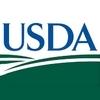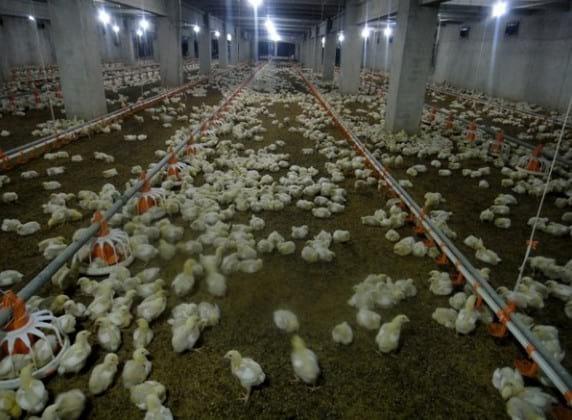Explore all the information on
Newcastle disease
Newcastle disease is a severe, systemic, and fatal viral disease of poultry due to virulent strains of avian paramyxovirus type 1. Clinical signs in unvaccinated birds include sudden death, lethargy, and respiratory distress. Diagnosis is based on laboratory confirmation. Vaccines prevent clinical signs but not infection, and the control of the disease is challenging in enzootic regions. Newcastle disease (ND) is an infection of domestic poultry and other bird species with virulent Newcastle disease virus (NDV). Newcastle disease is not a food safety or public health concern. Virulent NDV is capable of producing a devastating disease in domestic fowl, with vast social and economic consequences. It is a worldwide problem that presents primarily as an acute respiratory disease; however, depression, nervous signs, or diarrhea may be the predominant clinical form. Severity of ND depends on the virulence and genetic type of the infecting virus and host susceptibility.
Background Newcastle disease virus (NDV) is the causal agent of a highly contagious and fatal disease that affects poultry and other avian species worldwide [1]. Virulent strains of NDV are capable of causing high mortality (up to 100%) in non-vaccinated chickens [1]. NDV is a member of the genus Avulavirus of the family Paramyxoviridae in the order of Mononegavirals [2]. This virus has a nonsegmented single-stranded negative-sense RNA genome, which contains a 3′- leader...
Comments : 0
Recommendations: 0
Patti J. Miller, Veterinary Medical Officer at the Southeast Poultry Research Laboratory (USDA), presented her research on Newcastle disease virus, clinical signs, strains and vaccines, during ANECA 2017....
Comments : 5
Recommendations: 6
Introduction: Newcastle disease in chicken is caused by an avian paramyovirus serotype 1 (APMV1), it is one of the most economically and prevalent pathology around the world. It was first identified in Java (INDONESIA) in 1926 and 1927 in Newcastle-upon-Tyne, England. However, it may have been...
Comments : 9
Recommendations: 3
ABSTRACT
Infectious diseases are one of the main factors constraining the birds sector. In Iraq, pigeons are facing various diseases such as Newcastle disease (ND). Therefore, the experiment was carried out at the animal house, college of veterinary medicine/ University of Kufa to find the effect of fish oil on the immune response and antibody production against ND in pigeons daily oral administrated fish oil. Thirty male pigeons (Zigil...
Comments : 1
Recommendations: 1
Newcastle Disease, caused by Avian Paramyxovirus-1 (APMV-1), is a highly contagious viral disease affecting wild and domestic birds. Neurological and respiratory manifestations are most common, with viral strain and host species influencing susceptibility and virulence. Although clinical signs range from asymptomatic to lethal, APMV-1 is significant to the poultry industry as mortality may reach 100%. 1 Evaluation of potential reservoir hosts has focused on wild fowl (Galliform and...
Comments : 0
Recommendations: 3
Patti J. Miller, Veterinary Medical Officer at the Southeast Poultry Research Laboratory (USDA), explained the importance of biosecurity to go along with a vaccination program, during IPPE 2017 in Atlanta, USA....
Comments : 3
Recommendations: 1


Low Protein Diets Downregulate Hepatic Enzymes Responsible for Nonessential Amino Acid Synthesis in Broilers
Suggested link
Patti J. Miller, Veterinary Medical Officer at the Southeast Poultry Research Laboratory (USDA), gave a presentation on her research on killed and live NDV vaccines against virulent NDV strains in Atlanta, USA....
Comments : 2
Recommendations: 9
Patti J. Miller, Veterinary Medical Officer at the Southeast Poultry Research Laboratory (USDA), discussed her research on killed and live NDV vaccines against virulent NDV strains, during IPPE 2017 in Atlanta, USA. ...
Comments : 5
Recommendations: 7
WHY VACCINATE? Vaccination is an effective means to prevent and/or reduce the adverse effects of specific diseases in poultry. Poultry refers to birds that people keep for their use, and generally includes chicken, turkey, duck, goose, quail, pheasant, pigeon, guinea fowl, pea fowl, ostrich, emu and rhea. Disease-causing organisms can be classified, smallest to largest, as viruses, mycoplasma, bacteria, fungi, protozoa, and parasites....
Comments : 25
Recommendations: 0
How can broilers be made to gain weight after suffering from ND? They have been treated for ND but failed to be adding weight as expected since they are well fed?...
Comments : 0
Recommendations: 0


APIs and Vitamin MARKET - The weak demand for the APIs
Suggested link
Introduction Velogenic Newcastle Disease (ND), a dreadful poultry disease caused by a paramyxovirus type-I (Newcastle Disease Virus - NDV), continues to be an important threat to the modern poultry industry all over the world (4). An effective control of ND consists primarily of good biosecurity practices, preventive vaccination of flocks and the culling of infected birds and birds at risk of being infected. Vaccination...
Comments : 1
Recommendations: 1
Dr. Brett Hopkins, Technical Consultant at Arasco Foods in Saudi Arabia, was invited by IASA to speak about several cases of Newcastle Disease in some farms, about diagnostics, vaccinations, current situation, epidemiology and control challenges. ...
Comments : 0
Recommendations: 0
Journal of Immunological Methods 405 (2014) 167–177. http://dx.doi.org/10.1016/j.jim.2014.02.004 0022-1759 Crown Copyright © 2014 Published by Elsevier B.V. Contents lists available at ScienceDirect Journal of Immunological Methods journal homepage: www.elsevier.com/locate/jim Open access under CC BY-NC-ND license. Open access under CC BY-NC-ND license Abstract ...
Comments : 2
Recommendations: 0
Introduction
Viral respiratory diseases of significance are caused by only a handful of viruses represented by Newcastle disease virus (NDV), infectious bronchitis virus (IBV), infectious laryngotracheitis virus (ILTV), avian metapneumovirus (MPV), and avian influenza virus (AIV). Despite the relatively small number of types of viruses circulating in the field, the...
Comments : 8
Recommendations: 0
Introduction Fruits and vegetables, whole grains, beverages, and some fortified or omega-3 enriched products can be considered as functional foods. In fact, consumption of omega-3 is associated with reducing the risk of cardiovascular diseases, and cancers (Mozaffarian et al., 2005; Theodoratou et al., 2007) besides improving animal health and blood parameters (Jameel and Sahib, 2014). Tissue structure, muscles are the...
Comments : 2
Recommendations: 0
In my experience, during the rearing period of layer flock, most farmers faced problems with IBD and ND (resp.form/visceral form) at 20 to 30 days of age. Sometimes along with coccidiosis or colibacillosis. Mortality varies from 20 to 30%. Lost uniformity, less feed intake ,due to lake of knowledge, debeaking was done with less body weight. Lately, the flock performance was not satisfactory. Could veterinarians please help me with any...
Comments : 0
Recommendations: 0
Infectious diseases of poultry are mostly associated with severe economic losses. Many of these diseases once re-emerging or introduced into a geographic area can explode into an epidemic and may have a significant negative effect on international trade. Beside general control approaches like biosecurity, improvement of rearing management, monitoring, and vaccination several governmental measures on control of poultry diseases were adopted in European...
Comments : 0
Recommendations: 0
Deepak Khosla, General Manager of Venky´s India, speaks about immunity of birds and about new solutions, line of products and a vaccination program for the broiler industry....
Comments : 0
Recommendations: 3
Vincristine is an effective therapy for the treatment of canine transmissible venereal tumor (CTVT); however, the time for a complete clinical remission may vary depending on the tumor stage and host status. The aim of this study was to investigate an alternative or adjuvant therapy usingNewcastledisease virus (NDV) for the treatment of CTVT that does not produce side effects and enhances the immune response against the tumor.
...
Comments : 0
Recommendations: 0










.jpg&w=3840&q=75)








.jpg&w=3840&q=75)














